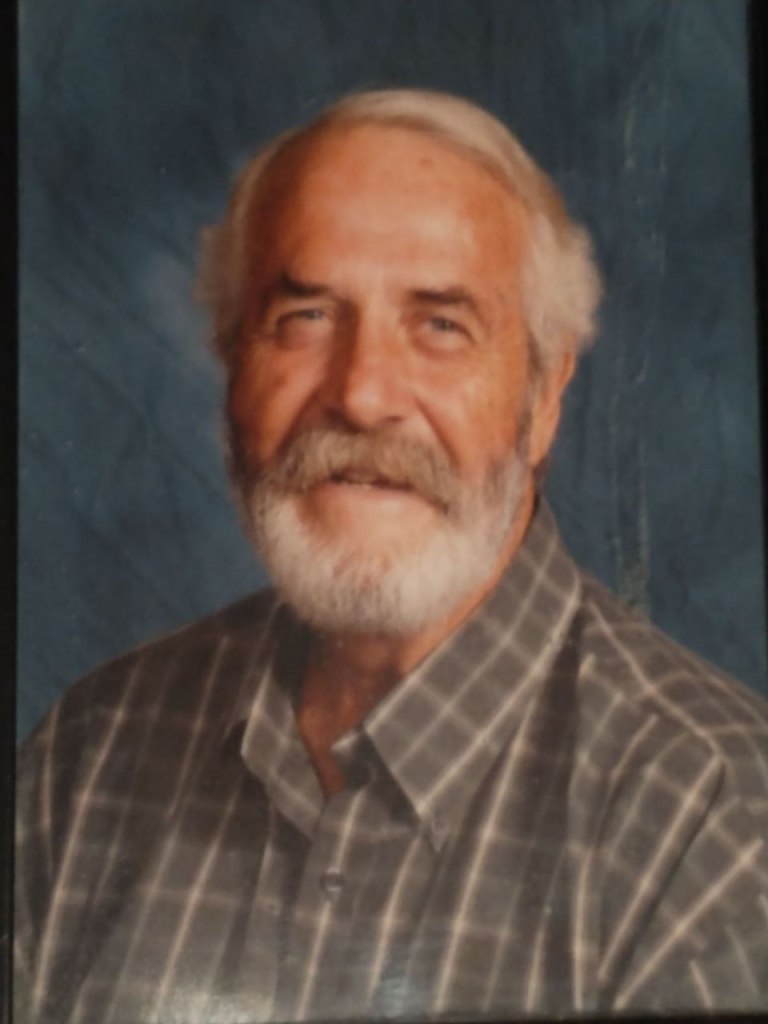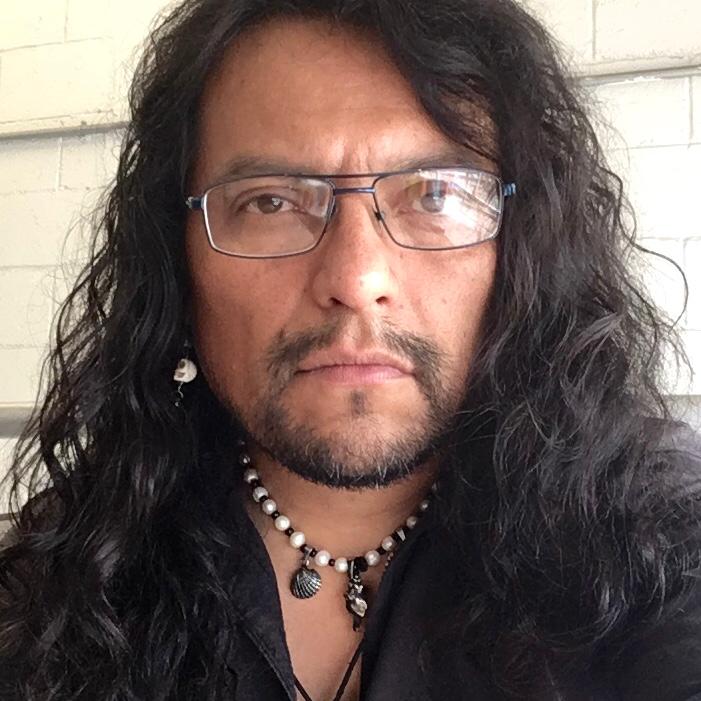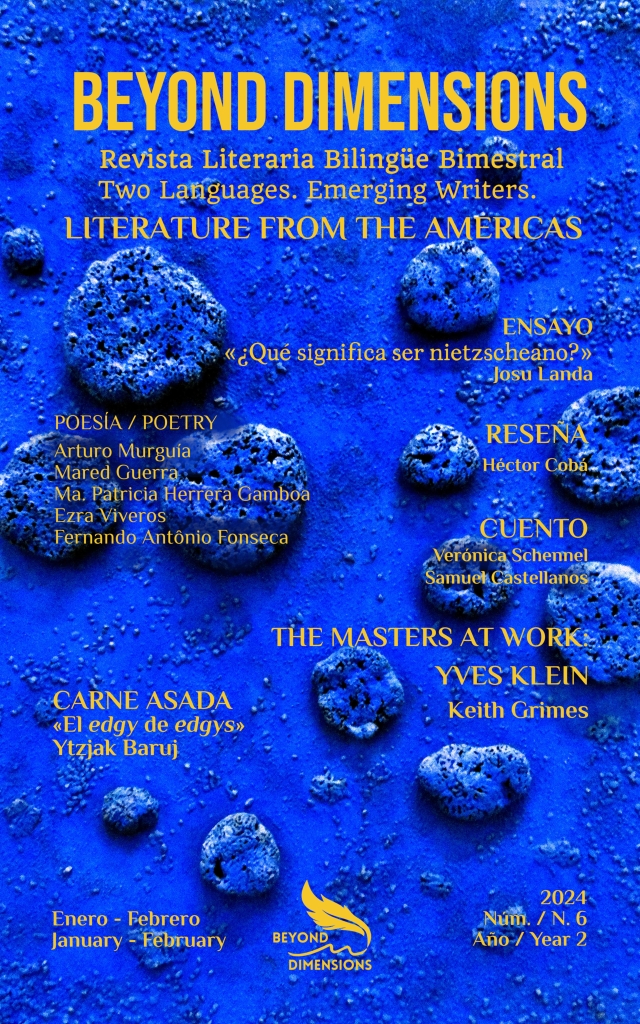Pat and Roy
by L. V. Davis
Into the night
they sat
under a naked light bulb
hanging on the porch
in our rope bottom chairs
Dad had moved to the porch
for them.
_
They talked low for two hours
Pat Patterson, the groceryman,
and Roy White, a good neighbor.
_
They talked about us,
the five of us children,
now left,
and a Dad who must have been
desperate to do what was right.
_
They murmured the low
secret murmurs
into the night.
I stared through the lower
window pane
with one eye,
and twice I thought
I heard Daddy cry.
_
They left together
the next day
gone for a long time,
and when they got back
Dad seemed just fine.
_
And in the borrow
we took to hoeing
in the crop
and stopped for a drink.
_
Dad said, “Would you boys
like a new home? Well,
What do you think?”
Said they had visited
an orphans’ home
and that something had to be done
cause everything was gone.
_
“Patterson,” he said, “can’t give
us any more credit for food,
and the bank is taking the
equipment.”
_
“It’s a good place
and you can get an education
and a big brick house
with your own room.
I’ve got to put the little
girls there. Joan’s goin’
to Dallas.”
_
“We don’t want to,” said
brother Jerald. Then he
said, “We can pick fruit in
Arizona and California.
Cogswell has done it and
says we could make it – the three of us.”
_
Dad thought on it and
knew he had to sell it.
_
So in the crop
he would suddenly stop
to put forth some
point to us.
“You won’t have to hoe
this black dirt no more.”
_
Then, “You won’t need to
eat squirrels or rabbits.
They eat good.”
_
And finally he said, lying
as hard as any man,
“I believe they might
have a pony there for the kids
to ride.”
_
And so, we agreed.
_
We went in new jeans
the girls in pretty little
dresses,
and all new shoes all around.
_
In the office
a gentle, big man
told us his name
and said that visits were allowed
just as often as families came, and
little sisters were sent out separately.
_
And Jerald and I sat at
a shiny table while
Daddy left.
_
He drove his old pickup back
round the building.
And, I raised the shade
to watch him go.
When he drove past
he never looked back, as
far as I know.
_
Years later,
when it had ceased to hurt,
I realized
that the orphans’ home
was also built on good, black dirt.
Pat y Roy
L. V. Davis
(traducción de Manuel Monroy Correa)
Hacia la noche
se sentaron
bajo el bulbo de luz prístina
aguardando en el porche
en nuestras sillas con fondo de cuerda
que papá había llevado ahí
para ellos.
_
Hablaron bajo, durante dos horas
Pat Patterson, el verdulero
y Roy White, un buen vecino.
_
Hablaron sobre nosotros
los cinco niños que éramos
ahora lejos
y un papá que debía estar
desesperado por hacerlo bien.
_
Murmuraron los tenues
murmullos secretos
por la noche.
Yo los contemplaba a través
del cristal más chico de la ventana
con un ojo
y dos veces pensé
haber oído llorar a papá.
_
Se fueron juntos
al otro día
se fueron por largo tiempo
y para cuando regresaron
papá parecía estar bien.
_
Y en la recogida
nos dedicamos a escardar
la cosecha
y paramos a beber.
_
Dijo papá: «¿Les gustaría, chicos,
tener un nuevo hogar? Y bueno,
¿qué piensan?»
_
Dijo que ellos habían visitado
una casa para huérfanos
y que algo debía hacerse
porque todo se había perdido.
_
«Patterson» dijo «no puede
darnos más crédito por la comida,
y el banco se está llevando
el equipo»
_
«Es un buen lugar
y pueden tener una educación
y una casa de ladrillo
con su propio cuarto.
Debo poner a las niñas
ahí. Joan va ir
a Dallas.»
_
«No queremos» dijo
mi hermano Jerald. Entonces
añadió «Podemos recolectar fruta
en Arizona y California.
Cogswell lo ha hecho
y dijo que podríamos –los tres–»
_
Papá pensó en ello
y supo que nos lo tendría que vender.
_
Así, en la cosecha,
se detendría de repente
para poner por delante
un punto:
«No tendrán que arar
más esta oscura tierra».
_
Luego, «No tendrán
que comer ardillas o conejos.
Allá comen bien.»
_
Finalmente, poniéndose
tan seguro como cualquiera
«Supongo que ahí tendrán
un pony para que los niños
monten.»
_
Y así, accedimos.
_
Fuimos con nuevos jeans
las niñas con lindos
vestiditos,
y todos estrenando zapatos.
_
En la oficina
un hombre, grande y gentil
dijo su nombre
diciendo que podía haber visitas
tanto como las familias pudieran venir
y que las niñas se irían por separado.
_
Jerald y yo nos sentamos
a la blanca y brillante mesa mientras
papá se iba.
_
Manejó su vieja pickup
dando vuelta al edificio.
Y yo levanté la persiana
para verlo ir.
_
Al pasar
nunca miró atrás,
que yo sepa.
_
Años después
cuando había dejado de doler
supe que
el orfanato
se había construido en buena, oscura tierra.

Larry Valton (L. V.) Davis 1945
L. V. graduated from the University of North Texas in 1972 with a degree in English and theatre.
In 1980, he published his first novel, Dallas Blue. Several more followed. Blackland Blues, a novel in free verse soon to be published by Beyond Dimensions, has never been published. Beyond Dimensions is proud to be L.V.’s new publisher and we look forward to a long and rewarding relationship.
L.V. returned to the Blackland, He now lives in Cumby, Texas with his wife, Sandra where he reads, writes, and tends the land. It is not the same, the cotton is gone, but it is his.
Manuel Monroy Correa (México, 1976), poeta heracliteano, según su propia designación. Autor de Auspicio (Casa Editorial Abismos, 2017), El [llanto del] crepúsculo (Hebel, 2017) y otros libros. Textos suyos han aparecido en revistas literarias y académicas, digitales e impresas. Tiene proyectos de pintura digital y de audio («Sonoremas»). Es doctorante en Letras Modernas por la Universidad Iberoamericana.
Mastodon: @monmac@anartis.org
Pixelfed: monmac@picto.anartis.org




Deja un comentario